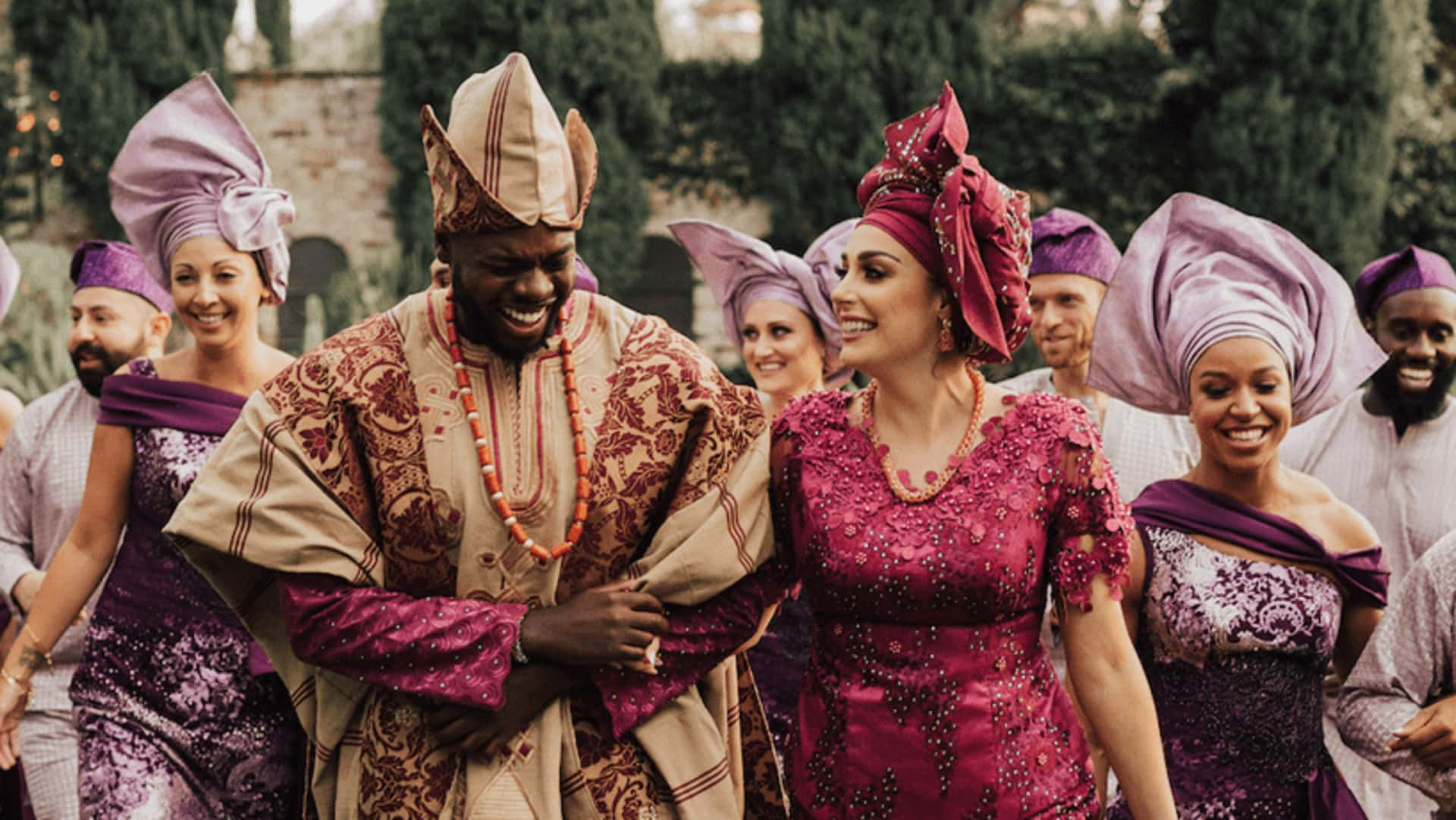
Unveiling Nigerian traditional attire
What's the story
Nigerian traditional attire showcases a rich blend of cultures and ethnicities, with each piece narrating the spirit and heritage of its people. The vibrant colors and intricate designs are not just clothing but a celebration of identity and tradition. This article delves into the beauty of Nigerian traditional wear, highlighting its history, significance, and modern styling tips.
Background
The rich tapestry behind the attire
Nigeria, with more than 250 ethnic groups, boasts a diverse array of unique traditional attires. Among the most celebrated are the Yoruba's agbada, the Igbo's isiagu, and the Hausa's babban riga. These garments serve not only for daily wear but also play pivotal roles during significant events like festivals, weddings, and coronations, acting as symbols of respect and markers of social status.
Key concept
Key elements of Nigerian attire
Traditional Nigerian attire is distinguished by its use of brightly colored fabrics, which are often adorned with elaborate embroidery and carry symbolic motifs. Common materials include lace, ankara (African wax prints), aso-oke (a hand-loomed cloth), and adire (a unique tie-dye fabric). To complete these ensembles, accessories such as beads, headdresses, and bangles are integral, adding depth and cultural significance to the overall look.
Practical advice 1
Modern twists on traditional styles
Adding traditional Nigerian pieces to your daily attire can introduce a distinct flair to your wardrobe. Consider pairing an ankara skirt with a simple top for a relaxed yet stylish look, or layer an agbada over jeans to make a bold fashion statement. Strategically mixing vibrant Nigerian prints with solid colors can help balance the intensity of the textiles, ensuring a harmonious ensemble.
Practical advice 2
Embracing cultural heritage through fashion
Wearing traditional Nigerian attire is more than a fashion choice; it's a profound way to connect with one's heritage. For those eager to explore their roots or simply appreciate Nigerian culture through fashion, it's advisable to start small. Incorporating elements like accessories or printed fabrics into everyday outfits is an excellent first step before transitioning to full traditional ensembles.